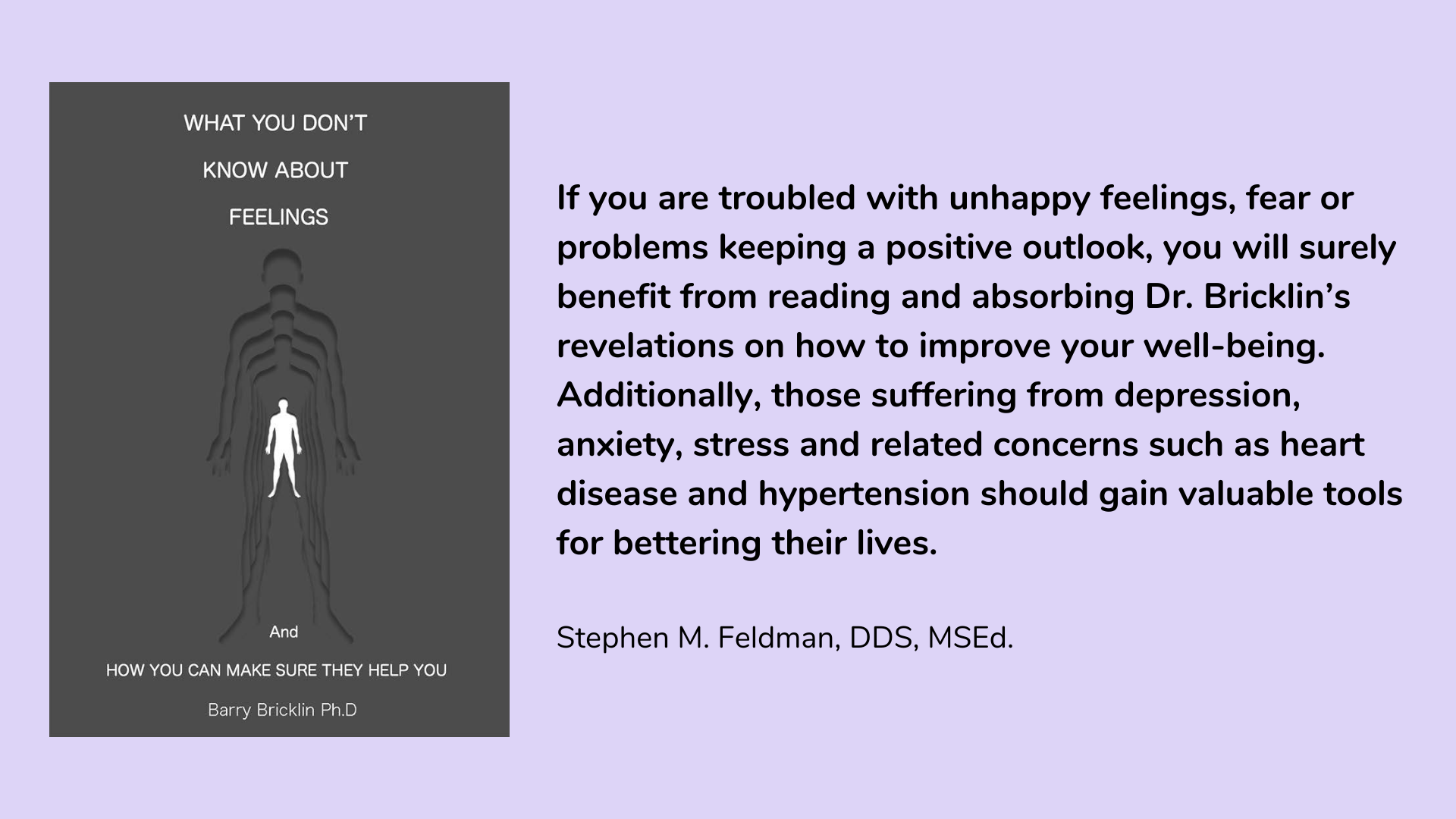What You Don't Know About Feelings
And How You Can Make Sure They Help You
Barry Bricklin, Ph.D.
Ultimately any successful therapy is a self-help procedure: the methods employed have to be accepted and/or used by the self. This is a premise of What You Don’t Know About Feelings. It is aimed at people who care about and use self-help procedures. It will be helpful for people interested in their emotions and feelings, who worry, feel stressed or depressed, and want to feel better.
Sometimes we are aware of the power of feelings to influence not only how we experience every second of being alive, but also every single thing we think, say, do, decide, desire, evaluate, remember, plan, or dream of. Other times the tremendous impact of feelings on every aspect of our lives is not clearly realized or properly managed. What You Don’t Know About Feelings, tells you how to access the feelings that work for you, and avoid or cancel the ones that defeat your immediate and long-term goals.
What You Don’t Know About Feelings makes use of the surprising similarities between fear and depression as well as the feelings-based origins of anxiety, it details how our feelings can be deliberately manipulated to sustain good feelings. Accessing just-right feelings will upgrade our thought processes. Feeling states can be purposefully accessed that do all of the following: increase motivation (the usual choice, or diminish it for dieting or drug-addiction purposes); enhance the number and variety of consciously available ideas; improve multiple-perspective thinking; heighten creativity; upgrade pattern recognition by increasing motivation; create mental states that feature unbiased, empathic attention, interest and curiosity. Also ideal for decision-making and mindfulness practices, the book is based on the works of neuroscientist Antonio Damasio.
What You Don’t Know About Feelings, is a tremendous step forward in combining the contemporary world of neuroscience with advances in psychotherapy. The book revolutionizes ideas on "feelings" and their power in determining one’s wellbeing by describing the neuroscience that is their underpinning. The book is a paradigm shift toward scientifically validated neuroscientific principles and represents growth in thinking from previous psychotherapeutic models. Dr. Bricklin’s book is accessible to professionals that practice psychotherapy as well as lay people. I truly enjoyed Dr. Bricklin’s book and his unique combination of the principles of neuroscience and psychotherapy. I highly recommend this forward thinking and most enjoyable read. (Kenneth B. Goldberg, Psy.D. Associate Professor and Director Neuropsychology)
What You Don't Know About Feelings: And How You Can Make Sure They Help You is available on Kindle and can be read on any device with a free Kindle app.
About The Author

A Clinical-Forensic Psychologist at Bricklin Associates, Barry Bricklin, Ph.D., served on the faculty and/or lectured at Jefferson Medical College, Hahnemann Medical College, Widener University, Temple University, and Johns Hopkins University, teaching psychotherapeutic, psycho-diagnostic and forensic procedures. Dr. Bricklin is the author of dozens of books, book chapters, and articles on psychology, psychotherapy, marriage problems, child custody issues and neuroscience. Several of his books have been translated into multiple languages.
You can learn more about Dr. Barry Bricklin by visiting his website accessgoodfeelings.com and via LinkedIn







